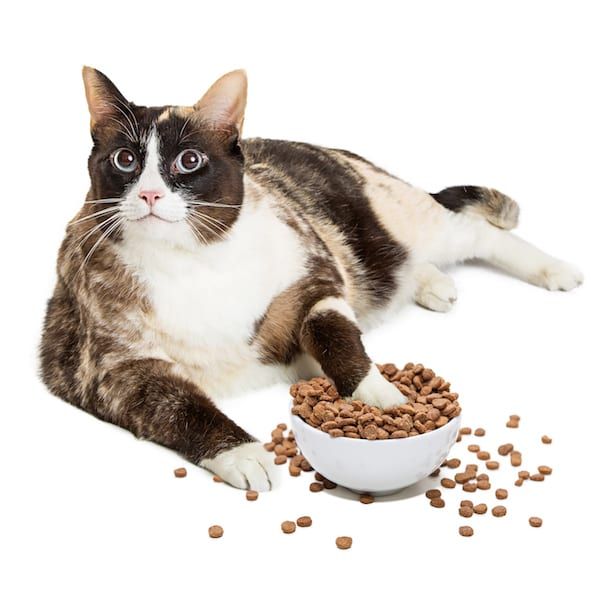
Pet Obesity Tips & How To Get Your Chubby Pets Healthy
It’s been said that pet obesity is one of the biggest preventable health problems for dogs & cats in the United States. If you have overweight or obese pets, you’re keeping company with a lot of other pet parents. In a 2017 “State of Pet Health” research study, the results found that one in 3 pets taken to animal hospitals were overweight or obese. In another study from a pet obesity prevention non-profit, more than 50% of U.S. dogs are overweight or obese, and close to 60% of U.S. cats are overweight or obese.
Being overweight or obese isn’t any better for pets than it is for people. For example, when your dog is just 5 pounds overweight, it can put your dog at risk of some serious medical conditions.
Pet Obesity Tips: How Your Pets Pack on the Pounds
It’s the age old formula that hits humans and animals: too many calories taken in, and not enough burned off. In rare instances, there’s a medical condition that can make your pet gain weight. But, for the most part, pets become overweight or truly obese because they are getting too much food.
When you put your pet on a diet, do not starve them. Instead, a gradual process of modestly decreasing calories while modestly increasing activity is recommended.
Pet Obesity Tips: An Overweight Pet Lives A Shorter Life
In addition to a host of serious diseases that can occur when your pet is overweight, overweight and obese pets live shorter lives.
If you want more time with your dog or cat, one of the best ways to ensure that is to help them gradually & healthfully drop some pounds.
Pet Obesity Tips: Diseases That Arise from Obesity
Pet obesity can lead to the following health problems:
- Arthritis
- Cancer (particularly abdominal cancers)
- Heart Disease
- High Blood Pressure
- Joint Injuries
Pet Obesity Tips: Medical Conditions That Cause Weight Gain
As part of any plan to help your pet get rid of excess pounds, a consult with a veterinarian is critical to making sure a medical condition is not causing the weight gain. There are 2 key conditions that can cause weight gain in dogs & cats:
- Underactive thyroid gland
- Cushings Disease
Your veterinarian can ensure a medical condition is not causing the weight gain with a simple blood test.
Pet Obesity Tips: How to Help Your Pets Lose Weight Healthfully
Here are some tips to help your pet gradually lose excess weight:
- Gradually Switch to Weight Management Pet Food: There are plenty of quality weight loss dog foods and weight loss cat foods. These pet foods will generally include a blend that includes more fiber and less protein, plus vitamins and minerals.
- MEASURE Their Food: If you’re not measuring your pet’s food with a measuring cup, and you’re just guessing, that’s part of the problem. Work with your veterinarian and determine how much food your pet should be getting based on size, age & activity levels. Then measure out your pet’s food for each meal.
- Limit Sugar Exposure: If you read labels on dog treats, you’ll be amazed at how many of them have salt and sugar. Exposing your pet to hidden sugars definitely helps pack on the pounds. So, limit treats, and read the labels so you can make an informed decision and buy low-sugar treats.
- Gradually Increase Activity: This strategy will depend on the age of your pet, and their physical condition. Increasing activity could be as simple as adding another couple of blocks to your dog’s walk, or adding 5 extra minutes of play time with your cat.
Sky Canyon Pet Parents Alert: During the month of October 2018, we’re offering 10% off a nutritional consultation.
Helping your pet lose weight is a gradual process that should occur over the course of months. Once you’ve helped your pet lose excess weight, maintain the new healthy habits, and weigh them once a quarter. Ultimately, the process of eliminating pet obesity will lead to a happier, healthier pet; minimize your veterinary bills; and let you enjoy your pet longer.
Need a veterinarian consult about your overweight pets? Contact Sky Canyon Veterinary Hospital, or call us at 970.985.4911, to schedule a pet nutrition or pet weight management consultation.
